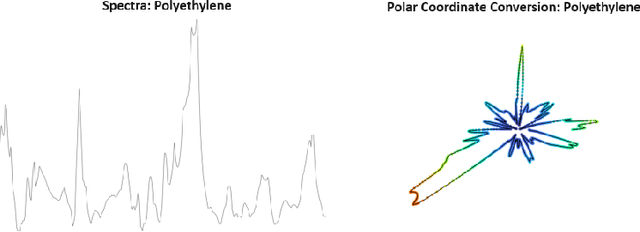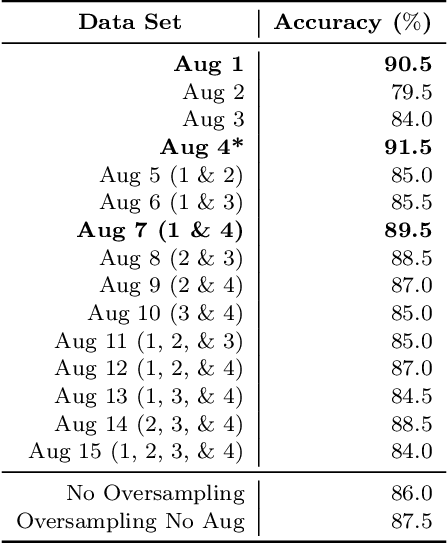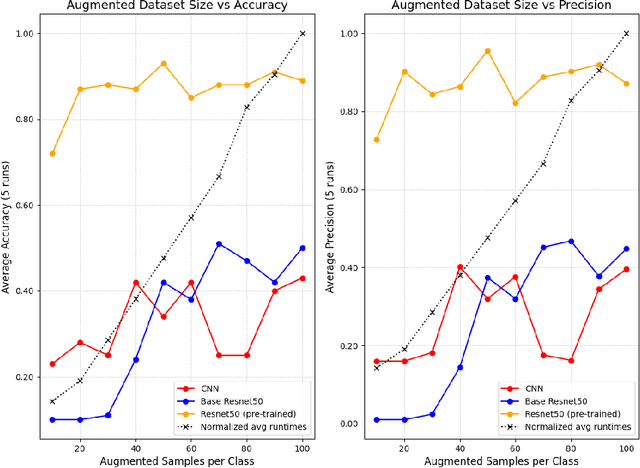Richard Anthony Valenzano
Expected Runtime Comparisons Between Breadth-First Search and Constant-Depth Restarting Random Walks
Jun 24, 2024
Abstract:When greedy search algorithms encounter a local minima or plateau, the search typically devolves into a breadth-first search (BrFS), or a local search technique is used in an attempt to find a way out. In this work, we formally analyze the performance of BrFS and constant-depth restarting random walks (RRW) -- two methods often used for finding exits to a plateau/local minima -- to better understand when each is best suited. In particular, we formally derive the expected runtime for BrFS in the case of a uniformly distributed set of goals at a given goal depth. We then prove RRW will be faster than BrFS on trees if there are enough goals at that goal depth. We refer to this threshold as the crossover point. Our bound shows that the crossover point grows linearly with the branching factor of the tree, the goal depth, and the error in the random walk depth, while the size of the tree grows exponentially in branching factor and goal depth. Finally, we discuss the practical implications and applicability of this bound.
GANsemble for Small and Imbalanced Data Sets: A Baseline for Synthetic Microplastics Data
Apr 10, 2024



Abstract:Microplastic particle ingestion or inhalation by humans is a problem of growing concern. Unfortunately, current research methods that use machine learning to understand their potential harms are obstructed by a lack of available data. Deep learning techniques in particular are challenged by such domains where only small or imbalanced data sets are available. Overcoming this challenge often involves oversampling underrepresented classes or augmenting the existing data to improve model performance. This paper proposes GANsemble: a two-module framework connecting data augmentation with conditional generative adversarial networks (cGANs) to generate class-conditioned synthetic data. First, the data chooser module automates augmentation strategy selection by searching for the best data augmentation strategy. Next, the cGAN module uses this strategy to train a cGAN for generating enhanced synthetic data. We experiment with the GANsemble framework on a small and imbalanced microplastics data set. A Microplastic-cGAN (MPcGAN) algorithm is introduced, and baselines for synthetic microplastics (SYMP) data are established in terms of Frechet Inception Distance (FID) and Inception Scores (IS). We also provide a synthetic microplastics filter (SYMP-Filter) algorithm to increase the quality of generated SYMP. Additionally, we show the best amount of oversampling with augmentation to fix class imbalance in small microplastics data sets. To our knowledge, this study is the first application of generative AI to synthetically create microplastics data.
A Formal Characterization of the Local Search Topology of the Gap Heuristic
May 12, 2017Abstract:The pancake puzzle is a classic optimization problem that has become a standard benchmark for heuristic search algorithms. In this paper, we provide full proofs regarding the local search topology of the gap heuristic for the pancake puzzle. First, we show that in any non-goal state in which there is no move that will decrease the number of gaps, there is a move that will keep the number of gaps constant. We then classify any state in which the number of gaps cannot be decreased in a single action into two groups: those requiring 2 actions to decrease the number of gaps, and those which require 3 actions to decrease the number of gaps.
 Add to Chrome
Add to Chrome Add to Firefox
Add to Firefox Add to Edge
Add to Edge